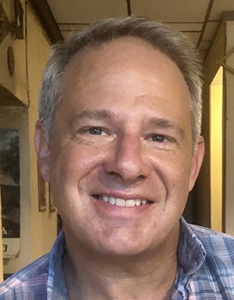Specifically Speaking with Michael Bendis, Syska Hennessy Group Bendis talks with SSN about increased interest in cloud and the changing workplace

By Paul Ragusa
Updated 12:12 PM CST, Tue November 23, 2021

YARMOUTH, Maine—Security Systems News’ Specifically Speaking column features Michael Bendis, Associate Partner at Syska Hennessy Group, a global, full-service MEP, information and communication technology (ICT) and commissioning engineer for the government and commercial sectors.
With more than 500 professionals across 18 offices, the firm provides a full range of engineering services for projects of every size and budget: from global headquarters to small office renovations; from the premier healthcare facilities to essential mission-critical facilities.
Bendis leads and manages Syska’s Security Services group with responsibilities for business development, sales, standards, project management, quality control, training and more.
The following is an exclusive Q&A with Bendis:
SSN: What kinds of systems do you design/specify and what services does the company provide?
 Bendis: We design/specify an extensive amount of systems from standard access control and video surveillance systems to more complex systems like asset tracking, hospital infant protection, and gunshot detection systems. Our clients seek us out for our comprehensive security experience and expertise on a wide range of systems and technologies.
Bendis: We design/specify an extensive amount of systems from standard access control and video surveillance systems to more complex systems like asset tracking, hospital infant protection, and gunshot detection systems. Our clients seek us out for our comprehensive security experience and expertise on a wide range of systems and technologies.
SSN: What vertical markets does the company specialize in? Any interesting projects that you can mention?
Bendis: Our clientele is not limited to certain vertical markets as we have wide expertise covering data centers, tenant improvement, healthcare, financial, manufacturing, distribution, life sciences, transportation, etc. As a result, we need to be well versed in a variety of security systems and technologies. For example, we recently completed projects to upgrade security for a local museum protecting rare works of art, a utility command/control center that complies with all government regulations/requirements, and for a large financial company’s world headquarters facility having multiple on-site operations.
SSN: How did you get started in security and designing/specifying?
Bendis: I started right after graduating from getting my undergraduate degree working as a project manager for technical projects at O’Hare Airport in Chicago. One of the projects was upgrading all the airport’s security systems and their command/control center. As a result, I became really interested in the security technology and systems. After that I started working with security design and consulting companies and have been in the industry ever since.
SSN: Can you talk about what new or emerging technologies you are seeing or specifying today?
Bendis: We are seeing a lot of interest in cloud-based security systems. It’s a different model than what the security industry is used to, but clients are becoming more interested and comfortable with it. Additionally, we are seeing security systems becoming more integrated with other systems. We have a large smart building design group, and we are constantly integrating data from security systems with other building systems to provide unique building functionalities.
SSN: What is your view on the industry moving forward?
Bendis: One of the areas that I see that needs to be addressed is responding to permanent workplace changes resulting from the COVID-19 outbreak. In particular, it appears that remote working will play a more significant role with many companies going forward. In response, I believe we will need to address remote worker security. Consider workers who deal with sensitive data or perform fiscal functions (i.e. authorize company payments). They traditionally have been protected at the office. If they are now going to work remotely, they become more at risk as they are no longer protected at the corporate site.
The risk of bad actors approaching them to obtain access to the company network or compel them to perform unauthorized transactions is much greater if they are working remotely outside corporate-controlled offices. The security industry will need to address this increase in risk.
Specifically Speaking, a Security Systems News monthly column, features Q-and-A with a security consultant provided to SSN by SecuritySpecifiers.
Comments